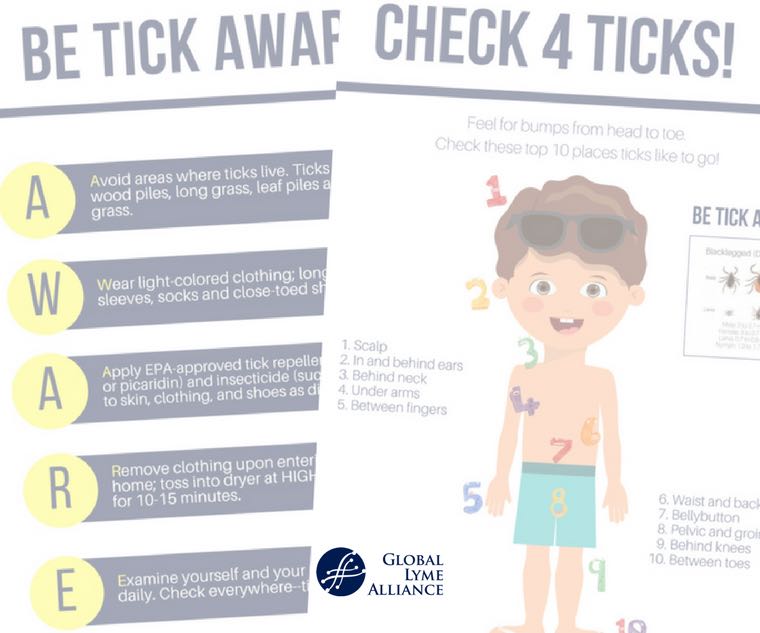
Sara Tyghter, Director of Education and Outreach with Global Lyme Alliance, talks about GLA's Be Tick Aware Prevention Program with Tony Savino on 1490AM WGCH Radio. Below is an excerpt.
Tony Savino, WGCH: Global Lyme Alliance has launched a tick prevention program "Be Tick Aware". I am joined now by Sara Tyghter, Global Lyme Alliance's director of education and outreach ... Tell us about this " Be Tick Aware" program. And this is, I guess, for parents with kids in camps, and outdoor activities. Sara Tyghter, GLA: We're actually targeting camps and camp directors to really train and educate their staff about tick safety. And also, parents as well, because as they're preparing their children to go to camps, this is something that they need to have a conversation with the camps and other outdoor activities that they're sending their children to, to understand how the camps are handling tick prevention on site, and then also the steps that they're taking to protect kids, educate kids, and also if, God forbid, a child gets bitten by a tick, what are they going to do immediately to take action? So, there needs to be that communication so parents understand, and then also that the camps are aware and they're definitely putting measures in place to really help prevent kids getting bitten by ticks. TS: And in your knowledge of this, are camps aware of this? Have they taken these kinds of steps? Or, is this why you have the program? ST: Well, this is one of the reasons that we have the program. We actually partnered with a prevention company called Ivy Oaks Analytics, and they offer a comprehensive prevention program that they're actually treating campgrounds for ticks, mosquitoes, and poison ivy; so, the triple threat. And we've partnered with them to be the education arm to not only their treating but then also to help train camp counselors so that they understand how to best prevent kids from being exposed to ticks, the high-risk areas and such. So far, this year, they've signed on 58 camps in seven states. And we're hoping to really grow that program because it's a great, comprehensive effort where they're actually doing the treatments, and we're also educating. TS: You have a prevention kit you give. What's in it? What is it? ST: So, this prevention kit offers posters that can be hung within the campgrounds; one poster, which talks about awareness, so the steps that one needs to take to really help prevent being bitten by a tick, to reduce exposure, one to show how to check for ticks, the various body parts, a tick removal tool, and also a tick identification card so you can see what a tick actually looks like, the various types, and the stages. TS: And will the camps be spraying or doing other things too ... Keep fences up to keep deer away, or spraying for ticks, that kind of stuff; what would they be doing? ST: Right. So, the camps that are part of the prevention program that we've partnered with, Ivy Oaks Analytics ... So, Ivy Oaks is actually doing the spraying. They assess the properties, they also have the tick boxes around the perimeter. So, they're taking that step to do the treatment. Camps outside of the program may also be doing that, I'm not certain. But, with Ivy Oaks, they do certify camps; so, there's on sight signage when parents bring their kids to camp, they can see that these camps were treated by Ivy Oaks, and then also received education through Global Lyme Alliance. TS: All right. And, speaking of which, people can get a lot of this information on your website, Sara? ST: Right. We have a website with all of the information, it's BeTickAware.org. And these camp kits are available, so camps can order these items in bulk, but parents can also order an item for themselves for at home use. And we really encourage camps and any other youth-based organizations that have even sports and everywhere else that our kids are being outdoors and exposed to the risks of ticks, to really take advantage of this information. Listen to the entire interview: [audio mp3="http://globallymealliance.org/wp-content/uploads/2017/07/071917-tyghter.mp3"][/audio]